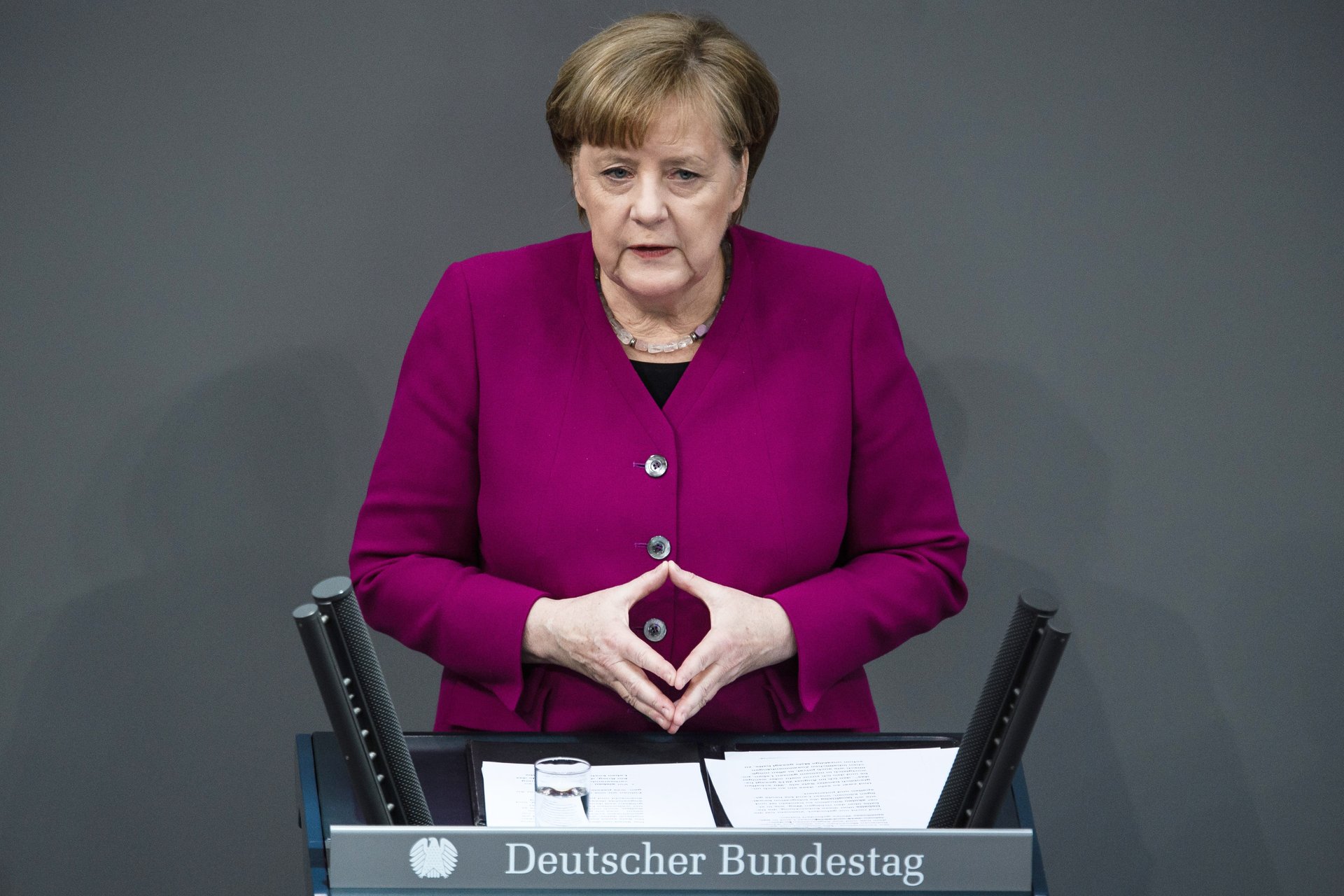Merkel insists Islam is part of Germany in the first speech of her new term
She’s been chancellor of Germany for 12 years, reduced to a caretaker for the past six months until she could form a new government. Today (March 21), Angela Merkel gave the first speech of her latest term to parliament, addressing the controversial topic of migrants and their place in German society.


She’s been chancellor of Germany for 12 years, reduced to a caretaker for the past six months until she could form a new government. Today (March 21), Angela Merkel gave the first speech of her latest term to parliament, addressing the controversial topic of migrants and their place in German society.
The chancellor directly contradicted her new interior minister—an old foe when it comes to the topic of refugees—Horst Seehofer, leader of the Christian Social Union. Seehofer sparked a furor last week when he told the Bild newspaper that “Islam does not belong in Germany.”
“There is no question that our country is historically Christian and Jewish,” Merkel said.“It is also true that Islam has in the meanwhile become part of Germany.” She acknowledged, however, that some Germans find that hard to accept.
Seehofer’s statement had been welcomed by the newest party in the German parliament, the far-right Alternative for Germany. When the AfD posted a poll on Twitter this week asking if Islam belonged in Germany, more than 80% of respondents said yes, prompting the party to quickly delete the survey.
Merkel said the atmosphere in Germany had become “polarized,” and the refugee crisis of recent years had challenged the country “in an unprecedented way.” She noted that Turkish and Italian immigrants had played a vital role in the rebuilding of post-war Germany and that their families were part of mainstream life.
About 4.5 million Muslims live in Germany, and the majority rejects radicalism, the chancellor said.
Unusually for Merkel, she admitted that in retrospect, her initial hope that the chaos of the war in Syria wouldn’t harm Germany was naïve. It soon became clear that the country wasn’t prepared for an influx of displaced people, she said, describing the taking in of more than a million refugees was a necessary ”humanitarian exception.”